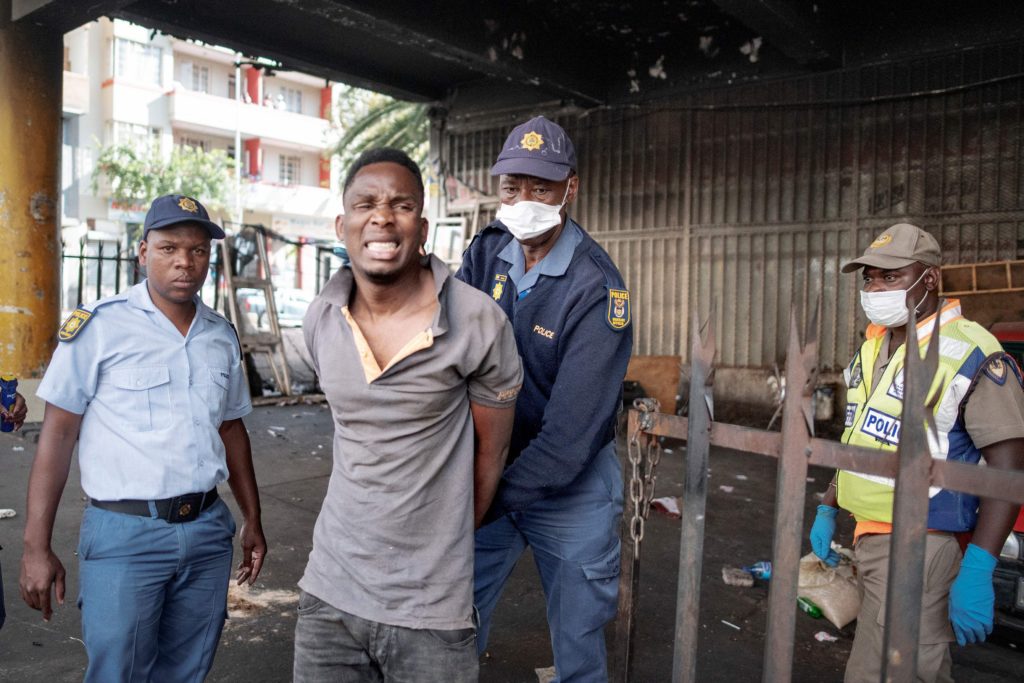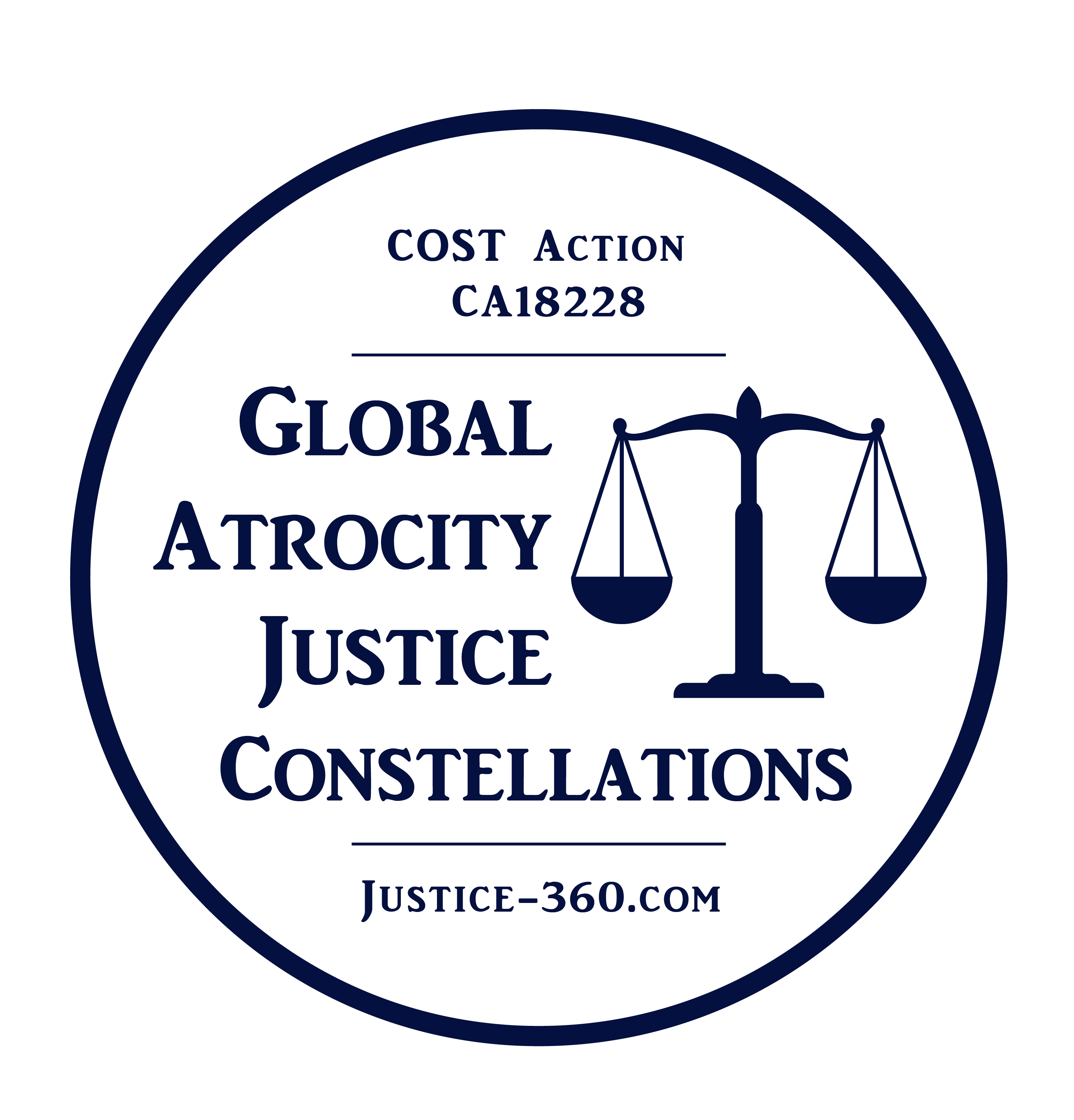Virus and Terrorism
Authors: Prof. Mark Drumbl, Dr. Sunčana Roksandić Vidlička
After September 11, 2001 – and for well over a decade thereafter – security, stability, and human rights concerns converged into a ‘war on terrorism’.
Suddenly, a new ‘war’ emerges: the ‘war on COVID-19’. Social distancing is the tactic; we all are enlisted in solidarity; the epidemiologists lead us; medical providers are our phalanx; our weapons are masks, ventilators, mobile hospitals, and sanitizers.
These two wars nonetheless mingle. Criminal justice legislation put in place to fight terrorism now is being deployed to fight virus. Terrorism is the intentional use of wide-scale and massive attacks on a civilian population aimed at intimidating that population. Just last week, in the United States, a memo from the Justice Department instructed that individuals who intentionally spread the novel coronavirus could be charged with terrorism for the ‘purposeful exposure and infection of others’. ‘Threats or attempts to use COVID-19 as a weapon against Americans will not be tolerated,’ according to US Deputy Attorney General Jeffrey Rosen. Links also emerge between the virus and treaties and laws that address biological and chemical weapons. Terror charges have been brought for coughing on a grocery store employee.
What would ‘purposeful’ mean? Does it mean breaking social distancing? Coughing? Forgetting to wipe the counter after making a coffee if one is quarantined in a house with others who are not infected? Going on a hike? Touching a doorknob? Forgetting your mask at home? If 80 percent of the population inevitably will be infected, can infecting still be criminal?
Law professor Michal Buchhandler-Raphael observes that the breadth of prosecutorial discretion in the American criminal justice system enables prosecutors to bend criminal charges relating to ‘ordinary’ infractions into crimes of ‘terrorism’. She notes that the ‘terrorist’ nature of the crime is merely implied from the technical means used to carry it (bombs, chemicals, now — we would add – virus spread) or the scope of the harm inflicted (mass casualties).
Policing, too, is changing in nature. In many countries, tickets and fines are issued for standing too close to me or me to you. Drones monitor parks. Russia deploys facial recognition techniques and ‘authoritarian tech’ to enforce the quarantine through intrusive surveillance. Hungary has suspended all elections and referendums. In New York City, police dismantle basketball hoops to prevent people from gathering in parks and playing; in Austin, Texas, officers are encouraging people to call a hotline to snitch on violators of the city’s orders for people to stay home. Informants and tattlers, ridiculed retrospectively following the demise of Cold War communism, are becoming encouraged once again as agents of public safety and order. In India, ‘police’ – themselves mask-less – use long canes to publicly flog people not wearing masks; migrant workers waling hundreds of miles home are forcibly bathed in ‘cleansing’ chemical solutions on the streets. In South Africa, police beat, shoot rubber bullets, and arrest people in possession of a beer can. Cyril Ramaphosa, the country’s President, now wears a camouflage military uniform for the first time. Hundreds of Kenyans are assaulted by police who fire tear gas and swung batons to enforce COVID-19 related curfews; a young boy was shot and killed by a police sniper on his own balcony for breaching a curfew. An 18-year old Canadian employee was arrested for allegedly lying to her employer (McDonald’s) about having COVID-19 in order to get out of going to work and charged with fraud. The state is becoming increasingly engaged in intrusive surveillance. Croatia imposes misdemeanors, criminal sanctions and is thinking of implementing AI surveillance over quarantine-breakers.

A member of the South African Police Service arrests a man after he was allegedly found in possession of alcohol in violation of the rules of the country’s lockdown in Johannesburg on March 27, 2020. Source: LUCA SOLA/AFP/Getty Images, published here.
A long story to make a short point: criminal law is coercive. It can serve salutary purposes, and it can serve problematic purposes. It serves as ultima ratio law, if the alternative is not able to be achieved without the threat of coercion. Although associating coronavirus with terrorism may achieve some expressive value of reinforcing the need for social distancing. It may ensnare fringe people or mentally suspect individuals, such as the German who licked subway ticket machines and handrails, while marginally protecting society at a time of great strain. Perhaps it can delay members of the public from the inexorability of infection, hopefully until a treatment or vaccine is found. However, COVID 19 is not about terrorism. Nor is it about criminal sanctions. Rather, COVID implicates the right to health and elevates that into a global frame. The reductive deployment of law to cast COVID as a terror threat is ultimately wrong-headed and facile. It is also menacing.
For now it might be too raw to look beyond the ‘battle’ and the scarring violence of death and fear triggered by COVID-19. Perhaps we should only speak about the consequences (or misuses) of flattening the curve after we exit the tunnel of infections and morbidities and panic.
Yes, perhaps, but it is not too soon to recognize that the world has been unprepared for the threat of a pandemic. We have built international security institutions to safeguard us from war and intentional acts of atrocity. Yet the greatest threat we now face is not human. Yes humans spread it, but statistically they do so not terroristically or intentionally – rather much spread is through inadvertence, carelessness, inexorability, ignorance, and simply going to work. Hence, is it surprising that liberal institutional internationalism has failed us? Seventy years of efforts folded up like a cheap house of cards so nationalisms and borders and controls and bans and checkpoints – disdained for so long — remerged with avidity literally overnight. These responses are reactive and regressive. The only way to preventatively deal with pandemics is through coordinated international efforts.
We panic and we resort to previously unheard of measures. These measures while understandable and necessary in the here and now require close scrutiny. They need to be seen as temporary derogations and not sweeping determinations. We need to be prepared for the world that will come once COVID-19 painfully sweeps through and finally exits. Else, we will be unprepared to appreciate that hasty changes to our social fabric may become permanent. We need to be mindful and vigilant that state authoritarianism does not evoke ‘protecting the public safety’ to invoke coercive measures not tailored to the pandemic but instead fueled by repressive ulterior motivations. Signs already emerge of the constriction of democracy in times of virus panic. Else, the war on virus will take a broader set of unnecessary casualties once the war ends: civil liberties, gender equality, mental health, democracy, employment, domestic violence, the polis, privacy rights, innovation, and critical thought.
We hope the post-virus society we build will be a better one than what we had pre-virus: gentler, kinder, fairer, healthier, open, global, public, free, transnational, coordinated, and energetic. That will only happen if we are insistently mindful of what we now surrender, do not succumb to fear, and remain aware of the long-term consequences of current policies. We don’t have to throw it all away, a thriving life that is, in order to survive. It is only possible if we start to understand what security really is all about, namely, building up humanistic health care systems that protect the weakest among us. It is not about prosecuting contagion as terrorism and repressing civil liberties.


